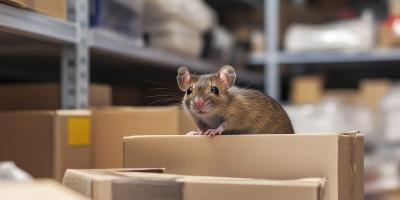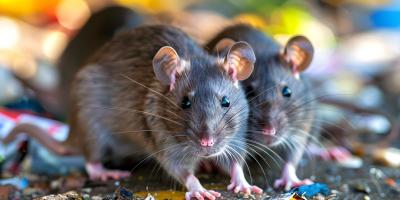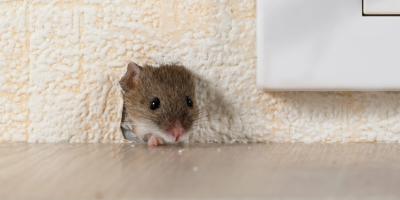Who's Responsible for Pest Issues -- Landlords or Tenants?

As if discovering a pest infestation in your apartment wasn’t troubling enough, the situation gets stickier when trying to determine who’s responsible for taking care of the issue -- landlords or tenants. Fortunately, we have some resources that should help clear up confusion and lead to a peaceful, professional resolution.
Landlords Typically Take on the Lion’s Share
In most cases, your landlord will be responsible for taking care of the pest problem. This is something that should be made clear in your lease; however, even if it isn’t explicitly stated, the responsibility tends to fall squarely on your landlord’s shoulders. In some cases, this is determined by state law, especially when it comes to multi-family residential properties because those kinds of pest infestations can be harder to eradicate.
However, some situations reverse responsibility over to the tenant. Often, it’s the type of pest that predicts which party will ultimately be on the hook to find and pay for a professional pest control solution.
The Type of Pest Possibly Predicts the Responsible Party
Some types of pests indicate what is known as an historical problem; in other words, the problem has likely been around for a while, possibly unbeknownst to the landlord or homeowner. Certainly, in this case, it’s fair to determine that the tenant, especially one who has recently moved in, is not responsible for any behaviors that would have attracted these pests in the first place.
Termites are a top example of an historical pest problem. Once notified, the landlord must take immediate action to rid the property of termites, or whatever other pest has infested the area. Now, failure on the part of the tenant to alert the landlord could result in legal action brought against them. After all, the property remains at risk for further damage and a landlord cannot possibly remediate a problem without knowing it exists in the first place.
Pests Produced by Troubling Tenant Behavior
On the flip side, if pests have infested a rental property because of problematic tenant behavior, the responsibility falls to the tenants. What is considered problematic behavior? Basically, any sustained habit or practice that attracts pests to the area. So, failure to properly bag and secure trash might attract pests, both inside and outside the property. If they are gathering outside, you can bet that the colder season will lure them inside, sooner than later.
Poor hygiene habits inside the property, whether that means garbage built up and spilling out of receptacles, improper food and/or pet food storage, negligent pet care (failure to bathe and/or clean up after pets), all attract pests like ants, cockroaches, and rodents, each of which can be difficult to eradicate without the help of a pest control professional.
Ultimately, in the presence of any pest, the tenant must report the issue to the landlord immediately. Action must be taken right away to protect the inhabitants and the property itself. Responsibility and payment can always be addressed after the fact and should not be the reason to delay seeking a solution.
Strongest Solutions Provided by Pest Professionals
No matter who is responsible for taking care of rental property pest issues, pest management is best placed in the hands of professionals. For landlords, your pest management company might recommend an IPM (Integrated Pest Management) approach, which combines prevention, education, and pest control product applications. This multi-tiered approach is proven more effective and cost-efficient for property owners, compared to the reactive extermination techniques of the past.
At JP Pest Services, all of our pest management solutions are derived and delivered according to the IPM model. Contact us when you’re ready to learn more about this proven pest control strategy to protect your rental properties.



